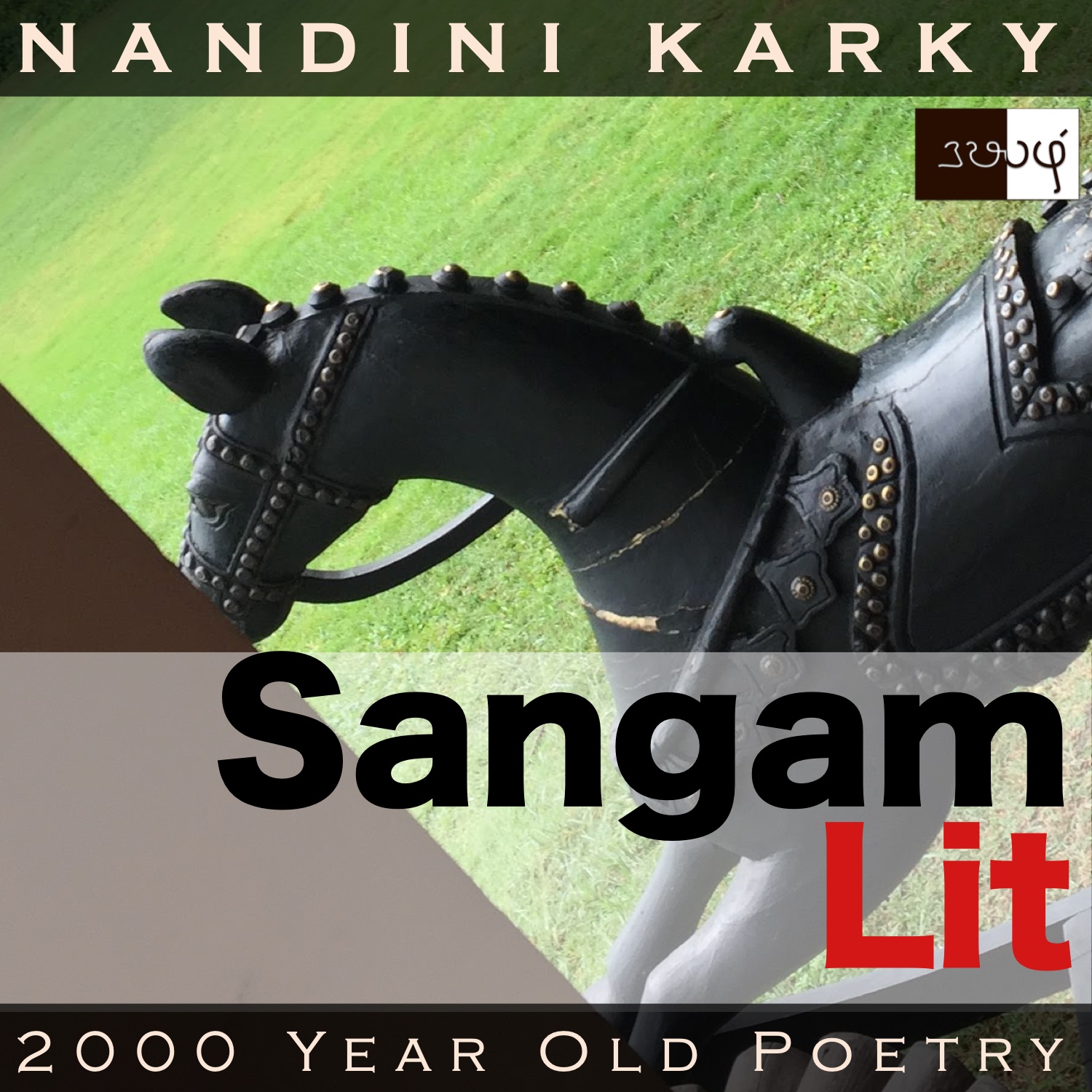Podcast: Play in new window | Download
Subscribe: Apple Podcasts | Spotify | Amazon Music | Android | iHeartRadio | TuneIn | RSS | More

In this episode, we observe curious customs in courtship, as portrayed in Sangam Literary work, Kurunthogai 173, penned by Madurai Kanji Pulavanaar. Set in the mountains of ‘Kurinji’, the verse speaks in the voice of the man to the confidante, when she refuses to accept his request to tryst with the lady.
பொன் நேர் ஆவிரைப் புதுமலர் மிடைந்த
பல் நூல் மாலைப் பனைப் படு கலி மாப்
பூண் மணி கறங்க ஏறி, நாண் அட்டு,
பழி படர் உள் நோய் வழிவழி சிறப்ப,
”இன்னள் செய்தது இது” என, முன் நின்று,
அவள் பழி நுவலும், இவ் ஊர்;
ஆங்கு உணர்ந்தமையின், ஈங்கு ஏகுமார் உளேனே.
‘I know what to do’ is the declaration that resounds here! In the opening words ‘பொன் நேர் ஆவிரை’, we glimpse at a flower commonly called as ‘mature tea tree flower’ or ‘avaaram’ and ‘its gold-like appearance’. Next, the spotlight falls on ‘பனைப் படு கலி மா’ meaning ‘a headstrong horse made from palmyra fronds’. The nature of the task ahead is succinctly captured in the phrase ‘நாண் அட்டு’ meaning ‘killing all sense of shame’. ‘பழி நுவலும் இவ் ஊர்’ talks about the ‘blame being placed by the town’ and hints of strong criticism against someone. Ending with the words ‘ஆங்கு உணர்ந்தமையின் ஈங்கு ஏகுமார் உளேனே’ meaning ‘because I know that well, I can leave from here’, the verse intrigues our curiosity.
What is that which is well understood and what is that which will invite criticism? The context reveals that the man had met the lady and fallen in love with her and the lady too seemed to reciprocate his feelings. However, custom dictated that the man seek the approval of the lady’s confidante to further his relationship with the lady. So, the man approaches the confidante but she keeps rebuffing him, perhaps to test the strength of his love. One day, after one such failed attempt, the man says to the confidante, “Wearing garlands made by threading together many strands of freshly bloomed, gold-like ‘aavirai’ flowers, the proud, palmyra horse will resound with bells around its neck, as I climb on it, killing my sense of modesty, because this sorrowful, inner disease overflows in me. And, I will declare standing in front of those in this town, ’She is the one who did this’ and they in turn, will censure her. Because I know this, I’m prepared to leave from here.” With these words, the man declares that he sees no other way but to publicly declare his love, as the confidante refuses to help him in his endeavour to meet with the lady.
Palmyra horses and public declaration – What is the significance of these in a love relationship? Let’s follow the man’s words closely to find out. The man declares how he will climb on a horse made of palmyra stems, one which wears bright, yellow ‘aavirai’ flower garlands and resounds with bells, as he walks along, pushing it. Having heard of this series of actions many a time, we know the man is talking about the ‘Madal eruthal’ or ‘Madal oorthal’ ritual, wherein a young man, goes around town, holding a portrait of the lady he loves, declaring she’s the one, who has reduced him to that state. This was a thing that was supposed to bring dishonour to the man and not to be resorted to, at all. That’s why the man says he has to end all sense of modesty in him to do this. Painful though this will be, what’s more painful is living with unfulfilled love that overflows, the man declares. He further pointedly tells the confidante that he will reveal to the townsfolk the reason for his ruin and adds that the consequence of that would be people speaking ill of the lady. Finally, he ends by saying as I know what I’m about to do, I’m all set to leave from this place.
That sounds looks like a classic case of blackmail! In other words, the man is threatening to bring blame upon the lady, even though it’s a matter of shame for him. Hearing this, the confidante will no doubt be startled and perhaps convinced of the intensity of his love and fulfil the man’s request. The whole process doesn’t feel right to our modern senses indeed. But, that’s the way life was then. It seems to be a part and parcel of the love life of the Sangam folks. I wonder which one of our courtship customs will seem bizarre to the people who will come two thousand years later!




Share your thoughts...